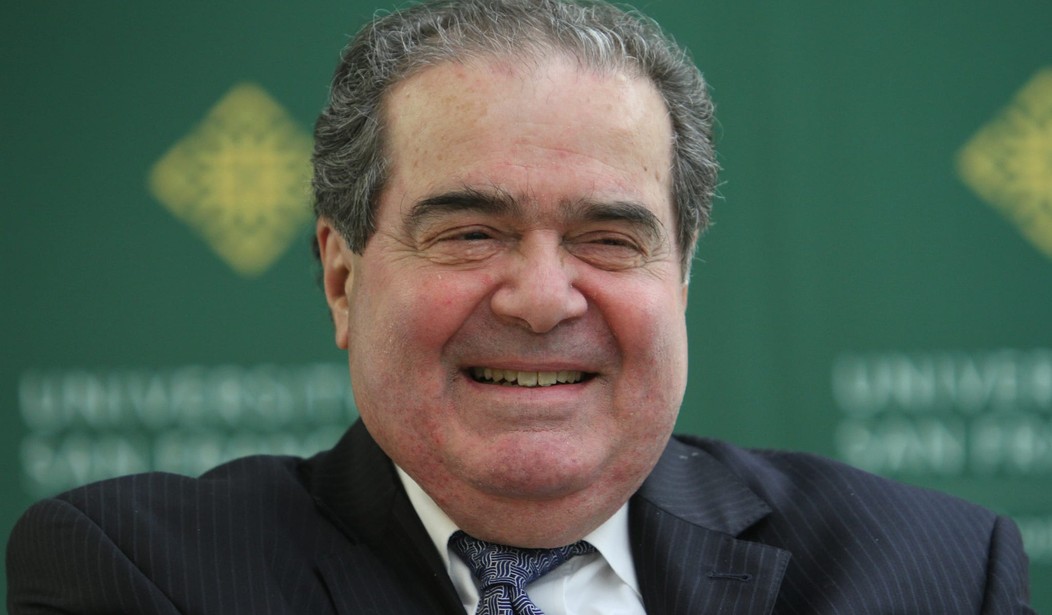When I was in law school, a Supreme Court clerkship was the Holy Grail. For me, it was clerking for Justice Antonin Scalia. Now that I’m a partner in a law firm that serves the notoriously progressive entertainment industry, the fact that I once clerked for Scalia often elicits looks of surprise from those sitting across from me, who ask if I’m the functional equivalent of a unicorn — a conservative in Los Angeles — a place that Scalia had amusingly warned me would “melt my brain.” I tell them, no, I’m politically liberal, but that my time working for the justice was one of the defining experiences of my life.
I’d heard all through law school that Scalia always hired one liberal clerk, though my sense is that this practice had waned in recent years. In fact, the process of applying for a Supreme Court clerkship entails applying to all nine justices — the notion being that justices choose clerks and not the other way around. But Justice Scalia was the person for whom I most wanted to work, not because we were ideologically aligned, but because we were not. It had to do with the way he was so deeply vilified — both personally, and as a jurist — by so many of my classmates. He was discussed in almost cartoonish fashion, conjuring images of twirled mustaches and barely-concealed devil horns. It was a time, just after Bush v. Gore and 9/11, when battle lines had been drawn, and it was politically correct to reject wholesale any belief that was not your own.
That approach made me uncomfortable, and I found myself becoming more and more interested in Justice Scalia’s work, eager to understand how someone so clearly brilliant could see the world so differently than I did. It’s why I took the job.
This entire article is worth a read. My colleague Scott Ott made me aware of it and said, “In one essay she debunks everything the Left has told us about Scalia.”
There was always a stark contrast between the cartoon-monster Scalia that garden-variety liberals portrayed and the way prominent liberals who actually worked with him felt. That pretty much sums up a general American approach to politics these days: create a caricature of the opposition, demonize the opposition based on the caricature, and watch all political debate swirl down the toilet forever.
I used to be very adept at finding common ground with people on the other side of the political aisle. Having spent most of my adult life in an industry where almost everyone was on the other side, that was a useful habit. I’m not so good at that anymore, and I can’t blame the media, social media, the Democrats, or anyone else for that–it’s all on me. I’m a conservative, and I wouldn’t be a very good one if I started blaming others for my behavior.
In politics, even the most disparate partisans can have some common ground. Even if none can be found, there has to be some inherent value in a willingness to look for it (yes, I’m preaching to myself).
Tara Kole simply brought some curiosity to her time with Scalia, and that ended up being the key to everything else. I’m speaking of genuine curiosity here, not a pre-judgmental “I need to get inside the mind of my enemy” approach. Kole’s open-mindedness enabled her to find respect and understanding, even in disagreement:
And, in some ways, the job is a strange one. To assist in the writing of opinions, clerks have to get inside a justice’s mind to think as they do and to write as they would. My role was to facilitate his, and sometimes that was easier than others. In one case I worked on writing a dissent — the position held by a minority of the court — with which I fundamentally disagreed on a moral level, but found, as I wrote, that I was drawn to Scalia’s reasoning; his emphasis on precedent, strict textual construction and judicial restraint. While I remain bound not to discuss details of the cases I worked on, I can say that Scalia’s arguments in that case conveyed a clarity not found in the majority’s opinion, which relied on legal and verbal gymnastics in order to reach the desired outcome. His approach had a logic and simplicity that resonated with me, despite my politics. I found myself able to get inside his mind in that moment, to sublimate my own views, and write confidently in his voice. I was proud when my co-clerk told me that Scalia had called it a “knock out.”
Admittedly, I’ve found myself jaded, skeptical, and prone to alcohol-induced liver damage during this election cycle. People like that aren’t curious anymore. My chicken-or-the-egg conundrum is centered around whether I’m jaded because I’m no longer curious, or vice-versa. Maybe there’s hope in the fact that I’m curious about that.
Kole’s biggest surprise about Scalia might be a good lesson for us all:
If there was a true surprise during my year clerking for Scalia, it was how little reference he made to political outcomes. What he cared about was the law, and where the words on the page took him.
Concern for the integrity of the process should come first.
A little more of that all around, with a generous helping of curiosity, and we wouldn’t have to worry as much about political outcomes.










Join the conversation as a VIP Member